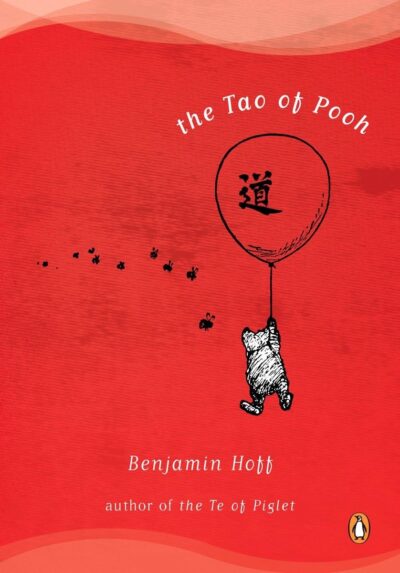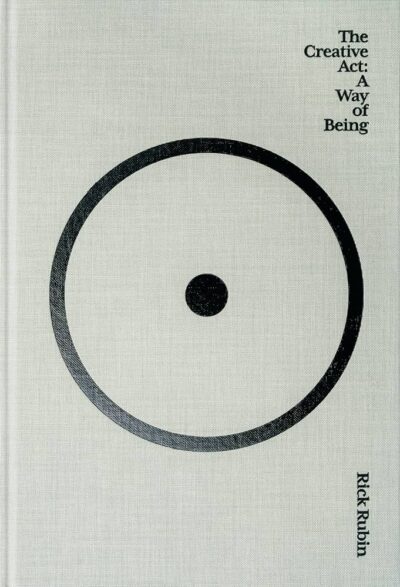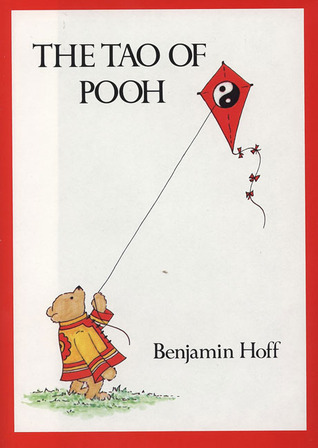128 Results in the "Philosophy" category
Biography & Memoir (434)
Books Like (8)
Business & Finance (26)
Children’s Fiction (203)
Dystopian (16)
Education & Learning (9)
Fantasy (1174)
fashion (1)
Fiction (4409)
Health & Wellness (21)
Historical Fiction (504)
Horror (159)
Literary Fiction (776)
Non-Fiction (1205)
Novel (229)
Others (106)
Poetry (208)
Politics & History (131)
Posts (64)
Psychology (46)
Religion & Spirituality (1)
Romance Novel (535)
Science & Technology (82)
Science Fiction (204)
Self-Help & Personal Development (99)
Thriller / Mystery (858)
Travel & Adventure (2)
True Crime (55)
view (96)
Young Adult (284)
-
Chapter
Spelling Tuesday
 The chapter begins with a vivid description of Winnie-the-Pooh's journey through the Hundred Acre Wood, emphasizing his simple yet earnest belief that Owl, the wise bird, possesses valuable knowledge. Bear's admiration for Owl reflects a common perception that wisdom resides in those who seem to know a great deal, setting the stage for a deeper exploration of what true knowledge and wisdom entail. The narrative introduces Owl's house as a symbol of seeking answers and understanding, prompting reflection on…
The chapter begins with a vivid description of Winnie-the-Pooh's journey through the Hundred Acre Wood, emphasizing his simple yet earnest belief that Owl, the wise bird, possesses valuable knowledge. Bear's admiration for Owl reflects a common perception that wisdom resides in those who seem to know a great deal, setting the stage for a deeper exploration of what true knowledge and wisdom entail. The narrative introduces Owl's house as a symbol of seeking answers and understanding, prompting reflection on…-
28.4 K • Ongoing
-
-
Chapter
Rules
 Creativity flourishes when artists dare to question the limitations imposed by convention, using rules not as restrictions but as temporary stepping stones toward innovation. This chapter explores the distinction between the fixed principles of disciplines like mathematics and science, where laws are unchanging, and the fluid nature of artistic rules, which are more suggestive than binding. Art, unlike scientific formulas, thrives on its ability to evolve, shaped by cultural shifts, personal…
Creativity flourishes when artists dare to question the limitations imposed by convention, using rules not as restrictions but as temporary stepping stones toward innovation. This chapter explores the distinction between the fixed principles of disciplines like mathematics and science, where laws are unchanging, and the fluid nature of artistic rules, which are more suggestive than binding. Art, unlike scientific formulas, thrives on its ability to evolve, shaped by cultural shifts, personal…-
341.4 K • Ongoing
-
-
Chapter
Preface
 Preface serves as a welcoming point of entry into the complex yet accessible philosophy of Henri Bergson. The original inspiration for the work came from two essays published in early 1912, and this expanded edition adds more continuity and depth to clarify points that may challenge first-time readers. The writer does not intend to critique Bergson’s thought academically, as the philosopher’s ideas continue to develop. Instead, the goal is to make Bergson’s vision understandable for a broader…
Preface serves as a welcoming point of entry into the complex yet accessible philosophy of Henri Bergson. The original inspiration for the work came from two essays published in early 1912, and this expanded edition adds more continuity and depth to clarify points that may challenge first-time readers. The writer does not intend to critique Bergson’s thought academically, as the philosopher’s ideas continue to develop. Instead, the goal is to make Bergson’s vision understandable for a broader…-
57.6 K • Ongoing
-
-
Chapter
Practice
 Developing a heightened awareness of one’s surroundings is an invaluable practice for artists, creatives, and individuals seeking to live with greater presence and purpose. In nature, animals focus intently on survival, their attention honed on securing food, shelter, and safety. However, for human beings, particularly those engaged in artistic pursuits, a narrow focus can sometimes be limiting rather than helpful. Creativity thrives on an expansive perspective, one that absorbs and synthesizes…
Developing a heightened awareness of one’s surroundings is an invaluable practice for artists, creatives, and individuals seeking to live with greater presence and purpose. In nature, animals focus intently on survival, their attention honed on securing food, shelter, and safety. However, for human beings, particularly those engaged in artistic pursuits, a narrow focus can sometimes be limiting rather than helpful. Creativity thrives on an expansive perspective, one that absorbs and synthesizes…-
341.4 K • Ongoing
-
-
 The Vinegar Tasters offers a playful yet insightful introduction to the Taoist philosophy through a whimsical dialogue between the narrator and Pooh. As Pooh expresses curiosity about Taoism, which he has heard of but doesn’t fully understand, the narrator crafts an imaginative journey to China to clarify this concept. They find themselves in a small shop full of allegorical scrolls and stumble upon a painting titled "The Vinegar Tasters." This artwork features three significant figures—Confucius,…
The Vinegar Tasters offers a playful yet insightful introduction to the Taoist philosophy through a whimsical dialogue between the narrator and Pooh. As Pooh expresses curiosity about Taoism, which he has heard of but doesn’t fully understand, the narrator crafts an imaginative journey to China to clarify this concept. They find themselves in a small shop full of allegorical scrolls and stumble upon a painting titled "The Vinegar Tasters." This artwork features three significant figures—Confucius,…-
68.0 K • Ongoing
-
-
Chapter
Point of View
 The chapter "Point of View" delves into the essence of art and its role in expressing the unique perspective of the artist. Rather than aiming for technical perfection or universally accepted beauty, the goal of art is to communicate the artist's personal view of the world. This expression allows others to engage with the artist's inner world, experiencing emotions, thoughts, and observations that might differ from their own. It is in this distinct personal element—rather than in adherence to…
The chapter "Point of View" delves into the essence of art and its role in expressing the unique perspective of the artist. Rather than aiming for technical perfection or universally accepted beauty, the goal of art is to communicate the artist's personal view of the world. This expression allows others to engage with the artist's inner world, experiencing emotions, thoughts, and observations that might differ from their own. It is in this distinct personal element—rather than in adherence to…-
341.4 K • Ongoing
-
-
Chapter
Point of Reference
 In Point of Reference, the chapter explores how our perception of art, music, and creative expression evolves when we encounter something unfamiliar. Often, when we first engage with a new artistic work—especially one that defies convention or deviates from our past experiences—there is an immediate sense of dissonance. This reaction is rooted in the absence of a familiar frame of reference, making the work appear strange or even unappealing. Whether it’s a musician experimenting with unconventional…
In Point of Reference, the chapter explores how our perception of art, music, and creative expression evolves when we encounter something unfamiliar. Often, when we first engage with a new artistic work—especially one that defies convention or deviates from our past experiences—there is an immediate sense of dissonance. This reaction is rooted in the absence of a familiar frame of reference, making the work appear strange or even unappealing. Whether it’s a musician experimenting with unconventional…-
341.4 K • Ongoing
-
-
Chapter
Patience
 In an age where speed is often glorified, patience emerges as an underappreciated virtue, reminding us of the value found in slowing down and embracing the process. The modern world frequently encourages instant gratification—whether through rapid information consumption, quick-fix solutions, or the pursuit of overnight success. Yet, history and experience reveal that true mastery, fulfillment, and even happiness stem from patience and perseverance. The text "Patience" challenges the notion that faster…
In an age where speed is often glorified, patience emerges as an underappreciated virtue, reminding us of the value found in slowing down and embracing the process. The modern world frequently encourages instant gratification—whether through rapid information consumption, quick-fix solutions, or the pursuit of overnight success. Yet, history and experience reveal that true mastery, fulfillment, and even happiness stem from patience and perseverance. The text "Patience" challenges the notion that faster…-
341.4 K • Ongoing
-
-
Chapter
Nowhere and Nothing
 The chapter opens with a whimsical dialogue between Pooh and Christopher Robin, where they embark on a journey to "Nowhere." This playful exploration introduces the concept of doing nothing, which Christopher Robin describes as a state of going along without effort or disturbance, simply listening and not bothering with plans or worries. The scene sets a tone of philosophical lightness, emphasizing the value of passive awareness and the importance of embracing the present moment. Through this interaction,…
The chapter opens with a whimsical dialogue between Pooh and Christopher Robin, where they embark on a journey to "Nowhere." This playful exploration introduces the concept of doing nothing, which Christopher Robin describes as a state of going along without effort or disturbance, simply listening and not bothering with plans or worries. The scene sets a tone of philosophical lightness, emphasizing the value of passive awareness and the importance of embracing the present moment. Through this interaction,…-
28.4 K • Ongoing
-
-
Chapter
Nothing Is Static
 The principle of impermanence lies at the core of Nothing Is Static, emphasizing that everything—whether in nature, art, or human experience—is in a constant state of flux. The chapter begins by encouraging an awareness of how even seemingly unchanging environments can feel different depending on the time of day, the shifting light, or the presence of new sounds and scents. A park visited in the morning may offer crisp air and birdsong, while the same space in the evening may feel heavier, carrying the…
The principle of impermanence lies at the core of Nothing Is Static, emphasizing that everything—whether in nature, art, or human experience—is in a constant state of flux. The chapter begins by encouraging an awareness of how even seemingly unchanging environments can feel different depending on the time of day, the shifting light, or the presence of new sounds and scents. A park visited in the morning may offer crisp air and birdsong, while the same space in the evening may feel heavier, carrying the…-
341.4 K • Ongoing
-
- Previous 1 2 3 4 … 13 Next
